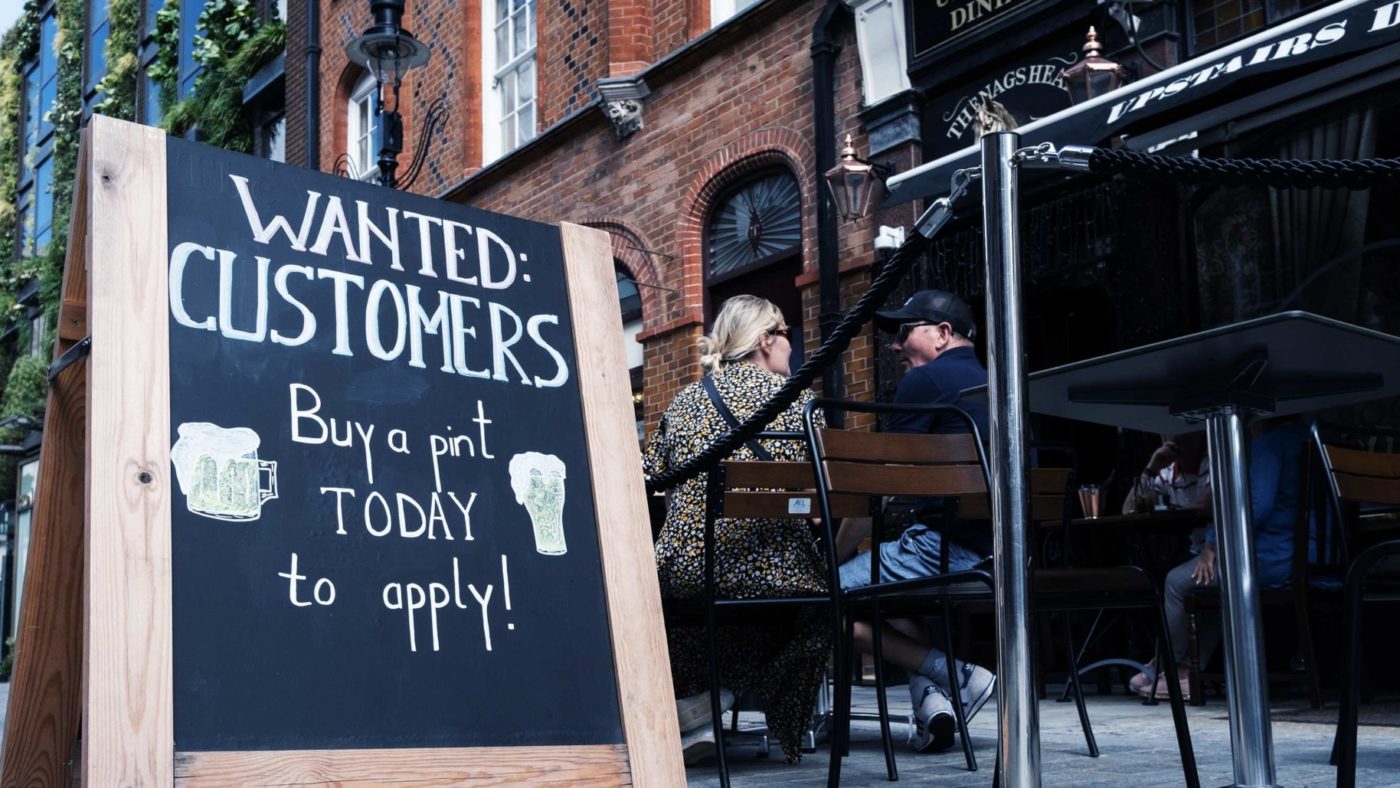Lockdown 2.0 has been delayed again. Despite rumours the Government was gearing up to shut us all in our homes again – just for two weeks this time, promise! – Boris Johnson has instead announced compulsory masks for retail staff, a 15-person limit for weddings and a 10pm curfew for the hospitality sector, all in the name of producing a ‘circuit break’ that stops the virus in its tracks. Worst of all, these restrictions, including the ‘Rule of Six, could be in place as long as six months – so anyone with a big family might need to rethink their festive plans.
In place of a clear strategy, the Prime Minister has chosen a halfway house that suits absolutely no-one. A curfew for pubs and restaurants will smother the fragile embers of recovery Rishi Sunak had worked so hard to stroke through Eat Out to Help Out. It will inevitably lead to business closures and job losses, especially for young people who are least likely to suffer from the virus itself.
At the same time, for those for the coronavirus hard-liners, these measures don’t go nearly far enough. Why 10pm and not earlier? Why are we still allowing people to go to work? How dare anyone step foot on public transport, for that matter? This second group will continue to push for any measure they hope will save additional lives. That sounds like a perfectly noble goal, but it misses the huge number of lives that are being damaged, potentially irrevocably, by the kind of illiberal policies they are so keen on.
The list is almost endless: cancelled GP appointments, longer hospital waiting times, social isolation, damaged career prospects, unemployment, rent arrears, the impossibility of finding childcare, a complete lack of education for millions of children. Any government’s basic responsibility is to weigh up the impact of its decisions in the round, not allow itself to become overwhelmed by a single issue.
As talk increasingly turns to whether we need another full-scale lockdown, it’s worth bearing in mind how much better prepared we are now than back in March. The stated purpose of the lockdown was to avoid overwhelming the NHS, a mission which was clearly achieved. Nightingale hospitals went unused – thank God – and those hospitals who did struggle with an influx of Covid patients battled against the odds but came through the other side. Six months on and we know much more about the virus, how it spreads, and how to treat it. Patients are less likely to end up in hospital than in early 2020 and less likely to die because the global community is – with some notable exceptions – sharing best practice and scientists across the globe are tracking what works and what doesn’t.
As John Ashmore pointed out in his most recent CapX briefing, the so-called ‘second wave’ is still nowhere near where we were in March. Yes, confirmed cases are at similar levels, but that is with a vastly improved testing system. Remember in March and April last year, tests were only available for those admitted to hospital, meaning hundreds, probably thousands of mild coronavirus cases went unrecorded. Hospitalisations are still low, as are deaths. This is not an argument for complacency, just for a bit of perspective.
There’s a much broader issue though: those pushing for further restrictions are denying the basic reality that without a cure or a vaccine, no amount of suppression is going to rid us of the disease. The Government knew this back in spring, when the graphics accompanying the daily press briefings ended with a rise in the number of infections when the lockdown measures were relaxed. So until a vaccine becomes available, which will be several months away at best, we are just going to have to learn to live as best we can with the virus, while taking the precautions we have now become so accustomed to.
The choices facing Mr Johnson and his advisers are high stakes but simple: do they listen to those who have been blinded by coronavirus and order us to stay at home for months at a time, with all the catastrophic effects that entails, or do they have the courage to say yes, coronavirus is scary, but it we cannot simply put life on hold while we wait for a cure. As for the rest of us, we need to fight for the right to live, work, spend and socialise as safely as we can – otherwise, what’s the point?
Click here to subscribe to our daily briefing – the best pieces from CapX and across the web.
CapX depends on the generosity of its readers. If you value what we do, please consider making a donation.


